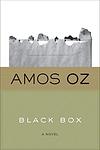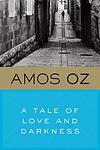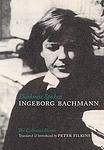The Greatest Israeli, Austrian Books Since 1970
Click to learn how this list is calculated.
This list represents a comprehensive and trusted collection of the greatest books. Developed through a specialized algorithm, it brings together 305 'best of' book lists to form a definitive guide to the world's most acclaimed books. For those interested in how these books are chosen, additional details can be found on the rankings page.
Genres
Countries
Date Range
Reading Statistics
Click the button below to see how many of these books you've read!
Download
If you're interested in downloading this list as a CSV file for use in a spreadsheet application, you can easily do so by clicking the button below. Please note that to ensure a manageable file size and faster download, the CSV will include details for only the first 500 books.
Download-
1. Correction by Thomas Bernhard
"Correction" is a complex narrative revolving around the life of a man named Roithamer, a genius obsessed with constructing an architectural masterpiece, the Cone, in the center of the Kobernausser forest. The story is told through the perspective of his friend who is reading Roithamer's notes after his suicide. The novel explores themes of obsession, isolation, and the pursuit of perfection, while also delving into the protagonist's troubled relationships with his family and society.
The 1031st Greatest Book of All Time -
2. The Piano Teacher by Elfriede Jelinek
"The Piano Teacher" is a dark exploration of power dynamics, sexuality, and repression. The story revolves around a piano teacher at a prestigious music school in Vienna who lives with her overbearing mother in a state of emotional and sexual repression. Her life takes a turn when she becomes sexually involved with a young, self-assured student. The relationship, marked by sadomasochistic games and emotional manipulation, spirals out of control, leading to a tragic end. The book is a profound critique of bourgeois values and the oppressive structures of society.
The 1057th Greatest Book of All Time -
3. Extinction by Thomas Bernhard
"Extinction" is a novel that explores the dark and complex themes of family, identity, and history through the eyes of its protagonist, a professor living in Rome. When he receives news of the deaths of his parents and brother in a car accident, he is forced to confront his past and his Austrian heritage. The narrative delves into his thoughts and feelings, his criticisms of his family and society, and his philosophical musings on life and death, all while he prepares to return to his family's estate for the funeral. The novel is renowned for its dense, stream-of-consciousness style and its unflinching examination of the human condition.
The 1416th Greatest Book of All Time -
4. Concrete by Thomas Bernhard
The book is a darkly introspective narrative that delves into the mind of a reclusive, obsessive intellectual who is struggling to complete his scholarly work on the composer Mendelssohn. As he grapples with his own ailments and the perceived mediocrity of his surroundings, the protagonist's stream-of-consciousness monologue reveals his deep-seated anxieties, self-loathing, and profound isolation. The narrative is a relentless examination of the protagonist's psyche, showcasing his critical view of society and his own personal relationships, which are fraught with tension and dysfunction. Through this, the novel explores themes of artistic creation, intellectual elitism, and the suffocating nature of expectations and familial obligations.
The 1733rd Greatest Book of All Time -
5. Woodcutters by Thomas Bernhard
Woodcutters is a darkly humorous critique of Vienna's artistic elite. The story takes place over the course of a single evening, as the narrator attends a dinner party in honor of a recently successful actor. As the evening progresses, he reflects on the pretentiousness and hypocrisy of the guests, the mediocrity of their artistic achievements, and the tragic suicide of his former lover. The novel is a scathing indictment of the vanity and self-delusion of the artistic community.
The 1741st Greatest Book of All Time -
6. The Uses of Enchantment by Bruno Bettelheim
"The Uses of Enchantment" is a psychological analysis of fairy tales and their importance in childhood development. The book argues that these stories allow children to navigate their emotions and understand aspects of life they are yet to experience. By exploring various themes, such as separation anxiety, oedipal conflict, and sibling rivalry, through well-known fairy tales, the author demonstrates how these narratives contribute to a child's moral education and understanding of the human nature.
The 1777th Greatest Book of All Time -
7. Sapiens: A Brief History of Humankind by Yuval Noah Harari
This book provides a comprehensive exploration of the history of the human species, tracing back from the earliest forms of Homo Sapiens to the modern day. It delves into evolutionary biology, the development of cultures and societies, and the rise of major ideologies and technologies. The book also discusses the future of the species, posing thought-provoking questions about our roles and responsibilities in a rapidly changing world.
The 2290th Greatest Book of All Time -
8. The Tao of Physics by Fritjof Capra
The book explores the parallels between modern physics and eastern mysticism. It draws connections between quantum mechanics, relativity theory and concepts in Hinduism, Buddhism, Taoism, and Zen. The author argues that the two seemingly disparate areas of study - physics and mysticism - both seek to understand the fundamental nature of the universe and that they do so in strikingly similar ways. The book challenges conventional thinking and encourages readers to see the world from a more holistic, interconnected perspective.
The 2434th Greatest Book of All Time -
9. Thinking, Fast and Slow by Daniel Kahneman
The book delves into the two systems that drive the way we think—System 1, which is fast and intuitive, and System 2, which is slow and deliberate. The author, a Nobel laureate, explores how these systems shape our judgments and decision-making. He presents several groundbreaking experiments that have shaped our understanding of human thought, revealing where we can trust our intuitions and how we can tap into the benefits of slow thinking. The book also discusses how our cognitive biases often lead to errors in judgment and affect our decision-making processes.
The 2662nd Greatest Book of All Time -
10. The Left-Handed Woman by Peter Handke
"The Left-Handed Woman" is a poignant, introspective novel that explores the life of a woman who decides to live alone after her husband leaves on a business trip. She attempts to find her own identity and independence by distancing herself from her usual social circles, including her young son. The novel is a deep dive into her thoughts, feelings, and experiences as she navigates her new life, offering a profound exploration of solitude and self-discovery.
The 2680th Greatest Book of All Time -
11. Wittgenstein's Nephew by Thomas Bernhard
"Wittgenstein's Nephew" is a semi-autobiographical novel that explores the friendship between the narrator and his friend Paul, who is the nephew of the famous philosopher Ludwig Wittgenstein. The story takes place in Vienna and is set against the backdrop of the Austrian mental health system. The novel delves into themes of sanity, insanity, and the fine line that separates the two, while also offering a critique of Austrian society. It is a meditation on the nature of illness, both physical and mental, and the impact it has on personal relationships and one's perception of the world.
The 3003rd Greatest Book of All Time -
12. A Sorrow Beyond Dreams by Peter Handke
This book is a poignant exploration of the author's mother's life and her struggle with depression, ultimately leading to her suicide. It provides a deeply personal and raw account of the author's attempts to understand his mother's despair and the societal constraints that contributed to it. The narrative is a profound reflection on memory, loss, and the complexity of human emotions, offering a stark and moving portrayal of a woman's life in a rigid, post-war society.
The 3042nd Greatest Book of All Time -
13. Black Box by Amos Oz
"Black Box" is a novel that explores the complex dynamics of a broken family. The story revolves around a divorced couple who are forced to reconnect after their son begins to display troubling behavior. The husband, a stern and disciplined judge, and the wife, a free-spirited Holocaust survivor, must navigate their personal differences, past hurts, and current relationships to address their son's issues. The book is written in the form of letters, revealing the characters' inner thoughts and struggles, making it a profound exploration of human relationships, regret, and reconciliation.
The 3270th Greatest Book of All Time -
14. The Afternoon of a Writer by Peter Handke
"The Afternoon of a Writer" is a contemplative exploration of a day in the life of a solitary writer who, after a successful morning of writing, decides to take a walk through an unnamed European city. As he strolls, he grapples with feelings of alienation and existential dread, questioning his purpose and the worth of his work. The book delves into the writer's inner struggles, his observations of the world around him, and his reflections on the act of writing itself.
The 3270th Greatest Book of All Time -
15. The Last World by Christoph Ransmayr
"The Last World" is a novel that reimagines the exile of the Roman poet Ovid in a remote village at the edge of the Black Sea. The story is set in a mythical time and place, where the villagers are haunted by strange transformations and echoes of Ovid's metamorphoses. The novel blurs the lines between the real and the imaginary, the past and the present, and the world of the living and the dead, creating a surreal and dreamlike atmosphere.
The 3375th Greatest Book of All Time -
16. Tongue Set Free by Elias Canetti
"Tongue Set Free" is a captivating memoir that explores the author's personal journey of self-discovery and identity formation. Through vivid and introspective storytelling, the book delves into the complexities of Canetti's multicultural upbringing, his struggles with language and communication, and his quest for freedom and belonging. With poetic prose and profound insights, the author reflects on the power of words, the influence of cultural heritage, and the transformative nature of embracing one's true self.
The 3447th Greatest Book of All Time -
17. A Tale of Love and Darkness by Amos Oz
This book is a poignant memoir that explores the complexities of love, darkness, loss, and the endurance of the human spirit. Set against the backdrop of the end of the British Mandate for Palestine and the early years of the State of Israel, the author recounts his childhood in Jerusalem, the suicide of his mother, and his path to becoming a writer. The narrative is both a personal account and a portrait of a society in turmoil, providing a profound exploration of the individual and collective psyche.
The 3705th Greatest Book of All Time -
18. Why Is There Salt In The Sea? by Brigitte Schwaiger
The novel explores the life of a young Austrian woman who finds herself in a stifling marriage with a fisherman in a small coastal village. As she grapples with the mundane and oppressive nature of her daily life, she yearns for freedom and self-discovery. The sea, with its salt, becomes a metaphor for her tears and the bitterness she experiences, as well as the vast possibilities that lie beyond her current existence. Her internal struggle and the choices she faces reflect the broader themes of women's liberation and the search for identity in a world that often limits female autonomy.
The 3743rd Greatest Book of All Time -
19. Lust by Elfriede Jelinek
This book is a provocative exploration of the dynamics of power and desire within the confines of a loveless marriage. Set against the backdrop of the Austrian Alps, it delves into the life of a woman trapped in a relationship with her abusive and unfaithful husband, a powerful paper mill owner. The narrative dissects the commodification of sex, the objectification of women, and the societal structures that perpetuate these themes. Through a stark and unflinching examination of the protagonist's degradation and the pervasive corruption in her world, the novel presents a scathing critique of consumerism, the patriarchy, and the hollow nature of modern relationships.
The 4367th Greatest Book of All Time -
20. The Snows Of Yesteryear by Gregor von Rezzori
"The Snows of Yesteryear" is a memoir that explores the author's complex and tumultuous upbringing in Eastern Europe during the early 20th century. Through a series of vivid and poignant anecdotes, the book delves into the author's personal experiences with war, displacement, and the collapse of the Austro-Hungarian Empire, offering a deeply introspective and nostalgic reflection on the fleeting nature of time and the enduring impact of one's past.
The 4827th Greatest Book of All Time -
21. Twilight And Other Stories by Shulamith Hareven
"Twilight and Other Stories" is a collection of evocative short stories that delve into the complexities of human experience, exploring themes of love, loss, identity, and the passage of time. The narratives, set against diverse backdrops, from ancient times to modern-day Israel, weave together a tapestry of characters each confronting their own moral dilemmas and emotional struggles. With a poetic and introspective style, the stories in this anthology invite readers to reflect on the subtle shades of humanity and the profound impact of seemingly ordinary moments.
The 4969th Greatest Book of All Time -
22. Homo Deus by Yuval Noah Harari
This book explores the future of humankind, building upon the foundation laid by its exploration of our past. It delves into the potential paths humanity might take as technological advancements and artificial intelligence begin to challenge the very essence of what it means to be human. The narrative posits that as we conquer famine, war, and plague, our focus shifts towards achieving happiness, immortality, and divinity, raising profound questions about our future roles and values in a world where machines and algorithms might outperform us in thinking, making decisions, and understanding the universe. Through a blend of philosophy, history, and future-gazing, the book invites readers to consider the implications of such a future, both exhilarating and daunting.
The 5073rd Greatest Book of All Time -
23. My Life by Golda Meir
The book is an autobiography of one of the most influential women in modern history, who rose from the poverty of her childhood in Russia and Milwaukee to become the Prime Minister of Israel. It offers a compelling account of her role in the founding of the state of Israel and its early years, providing personal insights into the myriad political and military challenges the nascent country faced. The narrative is interwoven with her own life story, including her experiences with immigration, education, and her rise through the ranks of the labor movement and political leadership, all set against the backdrop of the 20th century's tumultuous events leading up to and following the establishment of Israel.
The 5662nd Greatest Book of All Time -
24. The Loser by Thomas Bernhard
"The Loser" is a philosophical novel that revolves around the complex relationship between three friends who are all piano virtuosos. The narrative is driven by the protagonist's obsession with his friend's suicide, which he believes was triggered by the realization that they could never surpass the genius of their third friend. The book delves into the protagonist's psyche as he grapples with themes of talent, ambition, failure, and the destructive power of comparison.
The 5720th Greatest Book of All Time -
25. Darkness Spoken: The Collected Poems by Ingeborg Bachmann
"Darkness Spoken: The Collected Poems" is a compilation of works from a renowned poet that delves into themes of love, death, and political injustice. The collection, which includes both published and unpublished poems, explores the author's personal experiences and observations of post-war Europe. The author's powerful command of language and her exploration of the human condition through her poems make this collection a significant contribution to 20th-century literature.
The 6865th Greatest Book of All Time
Reading Statistics
Click the button below to see how many of these books you've read!
Download
If you're interested in downloading this list as a CSV file for use in a spreadsheet application, you can easily do so by clicking the button below. Please note that to ensure a manageable file size and faster download, the CSV will include details for only the first 500 books.
Download























